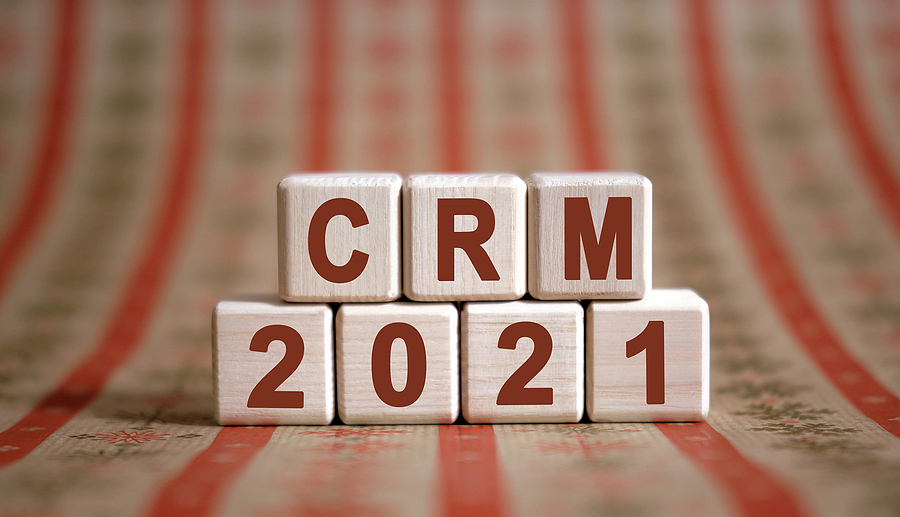Customer relationships are paramount to business success, especially for small businesses. And one major key to maintaining good customer relationship is having a customer relationship management (CRM) tool.
CRM systems are some of the fastest growing software offerings on the market today. Experts predict that revenues in the CRM industry could surpass $80 billion by 2025. So even though it feels like a big leap to make, if you don’t have one already, CRM is probably sounding like an investment your business should make.
What is CRM?
CRM software is what helps businesses organize every interaction with both potential and current customers. These robust tools intelligently store and manage customer and prospect information all on one platform, keeping your business connected so when it comes to knowing your customers, everyone is on the same page.
Some of the things CRM can help your business with include:
- Tracking customers and order history
- Identifying business opportunities and new sales leads
- Streamlining the sales process and reducing repetitive work
- Facilitating better support for current customers.
Seven Signs It’s Time to Add CRM
Adding a CRM might feel like a no-brainer, but it’s also good to be certain that it’s time to invest in this tool before you put the money out. Do any of these signs sound familiar? If they do, it’s time to get a CRM solution.
- Overwhelming lead flow: Does your influx of new business exceed your ability to keep up with the lead flow? CRM solutions can sort and prioritize leads, empowering the sales team to respond in a timely and efficient manner.
- Unable to locate customer data: When a business first starts out, volume is typically small enough that customer data can be managed in spreadsheets and handwritten notes. But with growth comes the need to expand visibility into customer interactions. On top of that, leadership needs information in order to make informed decisions, and make them quickly. CRMs provide a central source of easily accessible data that can drive sales success and increase customer retention.
- Know what the sales team is doing: Sales performance is a powerful metric. Leadership wants insight into what the team is up to, and the sales team likes to track their performance for goals and bonuses. CRM solutions can provide access for team members to update their accounts from desktop, laptop, or mobile, wherever they are in the field, and have the information populate for other relevant team members and leadership to see. This information can also help you decide where you may need to add extra resources or adjust forecasts for future sales.
- Customer service needs improvement: Don’t risk losing customers to subpar service. With a CRM system, you can spend more time proactively anticipating customer needs and less time reacting to complaints. CRM data gives you a unified view of customers and allows customer service agents to learn from each other, route cases to the right person, and even help answer questions with shared knowledge. Use the data from your CRM to help create a self-help community so customers can answer the most common questions on their own, freeing up your customer service team for the more unique and complicated needs.
- Valuable, long-term accounts need better management: Some customers will require the “white glove treatment.” CRM systems can flag important milestones and events for those valuable customers that help you maintain a long-term relationship. Data on individuals within the organization can also help you personalize communication and direct it to the right person and/or team. This becomes especially helpful to maintaining a relationship if your main point of contact leaves the company.
- Reporting is a time suck: Stop your sales team from manually entering data for reports and get them back to what they really need to be doing—selling! CRM solutions store your customer data centrally so you can pull real-time reports and produce accurate analysis.
- Future growth needs some direction: All companies hope to grow, but not all of them have the necessary insight to plan for handling an influx of new business, or to know what is necessary to scale for growth. Good CRM systems are able to not only provide insight into the trends that are influencing growth, but also grow with your business without impacting productivity.
Choosing the Right CRM Solution
Now that you know that you need a CRM, it’s time to find the right one for your organization. With so many options out there, how do you know where to start?
Especially after all the upheaval of 2020, we recommend looking into cloud-based CRM solutions, such as Acumatica CRM. Acumatica’s web-based CRM offers applications for managing leads, contacts, opportunities, and customer accounts. Plus, it’s available wherever there’s an internet connection, whether that’s in the office, on the road, or working from home.
But that’s not the only benefit. Acumatica’s CRM integrates wholly with the Acumatica ERP solution, meaning its connections are purpose built; you won’t face some of the integration challenges you would with other loosely integrated modules. The Acumatica CRM solution gives users access to a consolidated view of all customer records in a single database. It also offers dashboards and reports populated with real-time sales data perfect for managing forecasts, quotas, and results.
When your team is aware of all the experiences the customer has had that could influence the sales decision, they can be more prepared to support a successful sales process. If 2021 is the year your business adds CRM, consider selecting Acumatica CRM for your business software stack. Let the experts at ASI show you how easy it can be.

